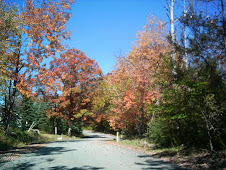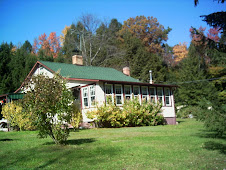

Everyone was running away from Irene since she arrived in town with a bad reputation. Circumstances forced me to do the opposite and drive straight into the hurricane. There were very scary moments, but the script for this disaster movie wouldn't be authentic if it overlooked the great waves of kindness moving around the eye of the storm.
For weeks I'd been planning a nice evening in my old Philly neighborhood where I had to fix a roof leak before the start of the rainy season. Once Irene showed her teeth, there was no way I could cancel the trip. Although the new galleries and restaurants in Northern Liberties have made it a sexy destination for people in sharp clothes, I lived there when it was a haven for working and middle class people of all incomes, races, and jobs. On summer nights, neighbors hung out on the front steps and shared the Yuengling.
Yesterday I was reminded that no amount of hipster marketing has erased the heart of my neighborhood. it still beats to the rhythm of hammers and saws of hard core Phillydelphians. As the rain teemed down on all the old brick houses, one guy from our street became the most important fellow in town. He's the local roofer who had spent his morning saving a church roof that was about to collapse under three feet of water! The gutters were blocked and they needed someone to get up there and unclog them before doom set in. By the time I found him, he'd already been working nearly around the clock saving local buildings before the storm hit.
His wife and I sat talking while George the hero changed his shirt, dried his head, and grabbed his truck keys. In the pouring rain, he climbed out on my roof with another guy from the bar across the street. The bar's number is the one you call when there's a crime or crisis. Since the guys there can solve most problems faster than cops or firemen, it's smart to get them involved early. Twenty minutes after George arrived, my leak was fixed, my neighbors were drenched, and I was soggy but safe. It was a great moment for my community. Soaked and laughing, we remembered what the realtors tried to make us forget. Come quakes or high water, Philly is a heart and soul town.
It was a long, exhausting drive back to the mountains and I'm glad to be out of the of Schuylkill backwash now. Still, it's nice to remember how much kindness lies at the heart of what we call disaster.









